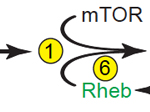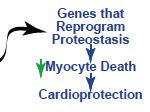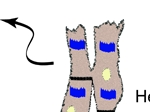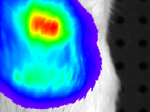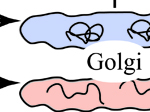Overarching Research Goals
Research in the Glembotski lab focuses on studies of cellular responses to physiological and pathological conditions, or stresses that challenge tissue viability and function. The overarching goals of the lab are to define signal transduction processes that are altered in cells in responses to stresses, such as a lack of oxygen and nutrients, known as ischemia, and how those processes remodel cells so they become more resilient to subsequent stresses. A better understanding of such protective stress responses is required in order to develop therapeutic approaches to treat chronic ailments, such as heart disease.
Specific Research Goals
Heart disease is the nation’s #1 cause of death, eclipsing the next five most frequent causes of death. Accordingly, the Glembotski lab focuses on basic science and translational heart disease research. Currently, our specific research goals are 1) to learn and understand the molecular mechanisms of heart disease, and 2) to convert what we learn to state-of-the-art therapies that could eventually reduce deaths due to heart disease.
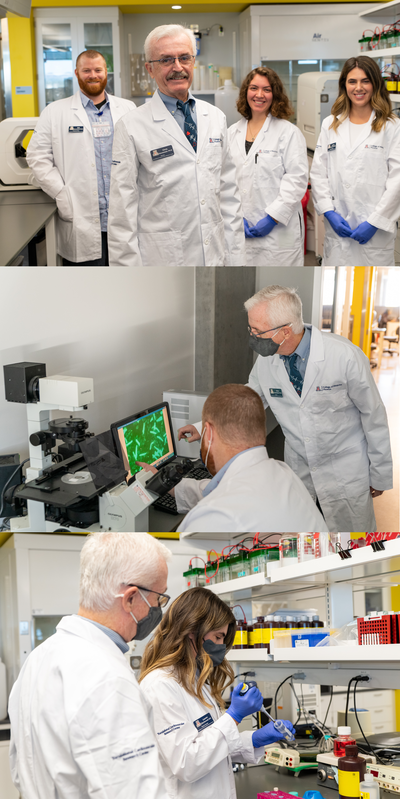
The Glembotski lab is part of the Translational Cardiovascular Research Center (TCRC) in the Department of Internal Medicine at the The University of Arizona College of Medicine – Phoenix.

Mentorship and Training

The Glembotski lab provides a vibrant and rich training atmosphere for undergraduate and graduate students, as well as post-doctoral fellows in biomedical research. Training in the lab is based upon the premise that frequent communication with the Principal Investigator concerning project development and oversight will enhance productivity and trainee success. Trainees learn a method of scientific thinking, project development, time management, and manuscript and grant preparation that ensures success during the training, and well into the future. The goal is to prepare every trainee with the knowledge, scientific approach, credentials, published peer-reviewed papers and funded grants that are universally recognized indicators of success. Accordingly, the enterprising, hardworking, and thoughtful trainee will emerge from the lab armed with the ability to think and communicate effectively.
Career Opportunities
There are excellent research opportunities for scientists and trainees at all levels in the Glembotski lab.
Visiting Scientists and Post-doctoral Fellows interested in working in the lab are encouraged to contact Dr. Glembotski directly. Students interested in pursuing a MS or PhD, and interested in our research are encouraged to apply to the University of Arizona College of Medicine – Phoenix graduate programs in Clinical Translational Science.
Contact us for further information about our research and opportunities
Research
Christopher C. Glembotski
Professor of Medicine
Director, Translational
Cardiovascular Research Center
Associate Dean for Research
Department of Internal Medicine
Translational Cardiovascular Research Center (TCRC)
The University of Arizona College of Medicine – Phoenix
Principal Investigator
Dr. Glembotski is Professor of Medicine at the University of Arizona College of Medicine – Phoenix (UA COMP), where he is also Associate Dean for Research and Director of the Translational Cardiovascular Research Center. Dr. Glembotski earned a B.S. in biochemistry from California State Polytechnic University, San Luis Obispo, CA, and a Ph.D. in biochemistry from the University of California, Los Angeles. After a post-doctoral fellowship in cell and molecular physiology, in the Department of Physiology at the University of Colorado Health Sciences Center in Denver, Colorado, Dr. Glembotski joined the faculty in the Department of Pharmacology at the University of Pennsylvania School of Medicine in Philadelphia, PA., after which he moved to SDSU to become the Director of the SDSU Heart Institute, before moving to his current location at UA COMP.
Dr. Glembotski’s current research is in the area of molecular cardiology, with a focus on identifying signaling mechanisms in the heart that regulate the growth and survival of the myocardium during normal and pathological conditions. Recent studies in Dr. Glembotski’s lab have led to a better understanding of the heart’s natural defense mechanisms and to the design and implementation of therapeutic approaches to boost these defense mechanisms in order to make the heart more resistant to heart diseases, such as heart failure.
Latest publications
Contact
- cglembotski [at] arizona [dot] edu
- 475 N 5th St, Phoenix, AZ 85004
- Please register in the Biomedical Sciences Partnership Building (BSPB)
















